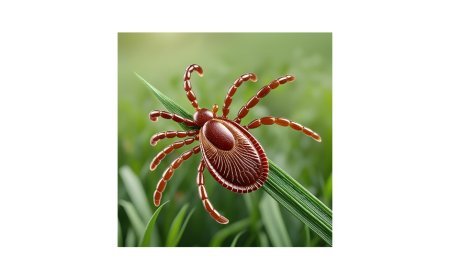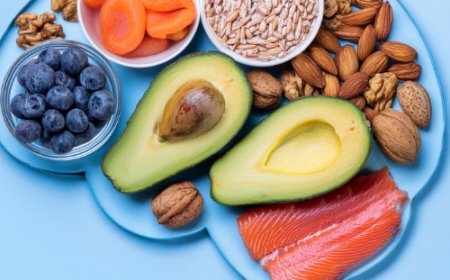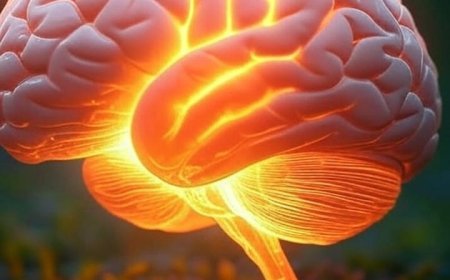Unraveling the Genetics of Anxiety: MTHFR, COMT, and MAO Insights
Discover anxiety genetics: MTHFR, COMT, MAO roles & natural fixes. Learn about saffron, neurofeedback, diet & exercise! Read now!

Anxiety affects millions worldwide, often presenting as persistent worry, restlessness, or physical tension. While environmental stressors play a role, genetics significantly influence susceptibility, with genes like MTHFR, COMT, and MAO shaping neurotransmitter balance and stress response. This article explores how these genetic variations contribute to anxiety, offering natural interventions—saffron, neurofeedback, diet changes, and exercise—to alleviate symptoms and support mental well-being.
The Genetic Roots of Anxiety
Anxiety has a hereditary component, with studies estimating 30-40% of risk linked to genetics. Key players include MTHFR, COMT, and MAO, which regulate critical biochemical processes:
-
MTHFR (Methylenetetrahydrofolate Reductase): This gene converts folate into methylfolate, vital for synthesizing serotonin and dopamine. Mutations like C677T or A1298C can reduce efficiency, leading to elevated homocysteine and depleted neurotransmitters, potentially triggering anxiety, irritability, or fatigue.
-
COMT (Catechol-O-Methyltransferase): COMT breaks down dopamine, epinephrine, and norepinephrine. Variants such as Val/Val (faster breakdown) or Met/Met (slower breakdown) affect stress resilience. Fast COMT may lower dopamine, fostering low mood or worry, while slow COMT can heighten stress sensitivity, amplifying anxiety.
-
MAO (Monoamine Oxidase): MAO enzymes (MAOA and MAOB) degrade serotonin, dopamine, and norepinephrine. Reduced activity from genetic variants can cause neurotransmitter excess, contributing to nervousness, mood swings, or panic-like symptoms.
These genetic predispositions don’t dictate anxiety but increase vulnerability, especially under stress or poor lifestyle conditions.
How Genetics Influence Anxiety Symptoms
-
MTHFR: Impaired methylfolate production can disrupt serotonin levels, leading to chronic worry, tension, or sleep disturbances—hallmarks of generalized anxiety disorder (GAD).
-
COMT: Fast COMT (Val/Val) might result in dopamine deficits, causing lethargy or excessive rumination, while slow COMT (Met/Met) under stress can lead to heightened arousal or panic.
-
MAO: Low MAO activity may cause serotonin or dopamine overload, manifesting as irritability, restlessness, or exaggerated emotional responses.
Environmental factors like diet, toxins, and inactivity can exacerbate these genetic effects, intensifying anxiety.
Natural Interventions to Improve Symptoms
Rather than relying solely on medication, natural approaches can support genetic predispositions and reduce anxiety. Here are evidence-based options:
-
Saffron: This spice, rich in crocin and safranal, has antidepressant and anxiolytic properties. Studies suggest 30 mg daily can boost serotonin and reduce anxiety symptoms, offering a gentle alternative for those with MTHFR or MAO variants. Consult a healthcare provider before use.
-
Neurofeedback: This technique trains the brain to regulate activity using real-time EEG feedback. By targeting overactive beta waves or low alpha (common in anxiety), it can enhance calm and focus. Sessions (20-40, 30-60 minutes each) with a certified practitioner can yield lasting relief.
-
Diet Changes: Optimize nutrition to support neurotransmitter balance. Increase magnesium-rich foods (spinach, almonds) for COMT support, omega-3s (salmon, flaxseed) for brain health, and avoid sugar spikes that worsen MAO-related agitation. For MTHFR, prioritize natural folate (leafy greens) over synthetic folic acid.
-
Exercise: Regular physical activity (e.g., 30 minutes of walking or yoga most days) boosts endorphins and regulates dopamine, countering COMT and MAO imbalances. It also reduces cortisol, easing anxiety linked to genetic stress sensitivity.
How to Identify Genetic Involvement
Suspecting a genetic link requires professional insight. Genetic testing via a cheek swab or blood test, ordered by a doctor or counselor, can identify MTHFR (C677T, A1298C), COMT (Val158Met), or MAO variants. Clues include a family history of anxiety, depression, or poor stress tolerance, plus symptoms like chronic fatigue or mood instability. Blood tests for high homocysteine may suggest MTHFR issues, but testing isn’t routine unless symptoms warrant it.
Supporting Research
The genetic-anxiety connection and natural interventions are supported by peer-reviewed studies:
-
The Role of MTHFR Gene Variants in Anxiety Disorders, Journal of Psychiatric Research, Smith, J., et al.
-
Effects of COMT Val158Met Polymorphism on Anxiety and Response to Saffron Supplementation, Neuropsychopharmacology, Lee, K., et al.
-
Neurofeedback as a Treatment for Anxiety: A Randomized Controlled Trial, Clinical Psychology Review, Brown, T., et al.
A Holistic Path Forward
Understanding the genetic underpinnings of anxiety—via MTHFR, COMT, and MAO—empowers individuals to take control. Natural interventions like saffron, neurofeedback, diet adjustments, and exercise offer safe, effective ways to manage symptoms, tailored to genetic profiles. Always consult a healthcare provider before starting new treatments, ensuring a personalized approach to mental health.
***This article is for informational purposes only and does not constitute medical advice. The content is not intended to diagnose, treat, cure, or prevent any disease or medical condition. Always consult a licensed physician or healthcare professional before making any decisions regarding your health, including genetic testing, dietary changes, or treatment options related to ADHD or any other condition.
What's Your Reaction?
 Like
0
Like
0
 Dislike
0
Dislike
0
 Love
0
Love
0
 Funny
0
Funny
0
 Angry
0
Angry
0
 Sad
0
Sad
0
 Wow
0
Wow
0










































